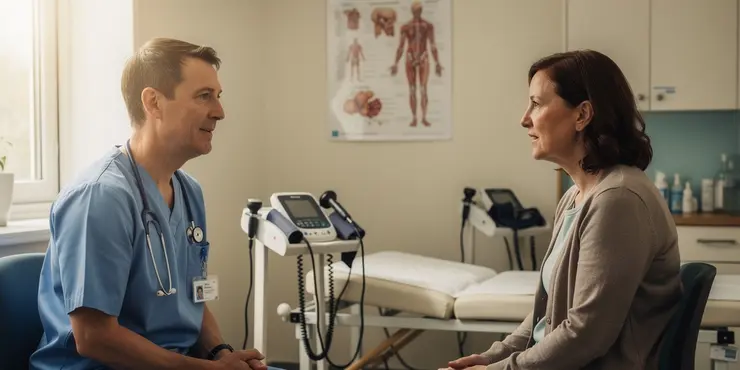
Find Help
More Items From Ergsy search
-
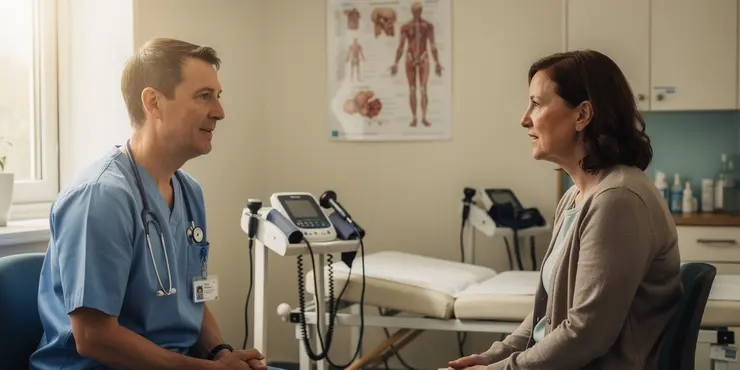
Is appendicitis hereditary?
Relevance: 100%
-
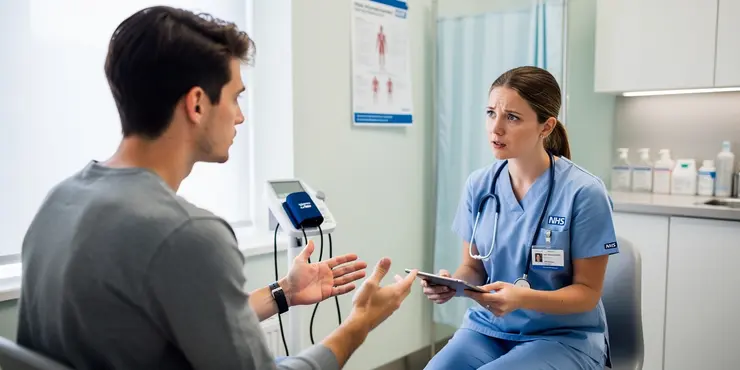
What is Appendicitis?
Relevance: 58%
-
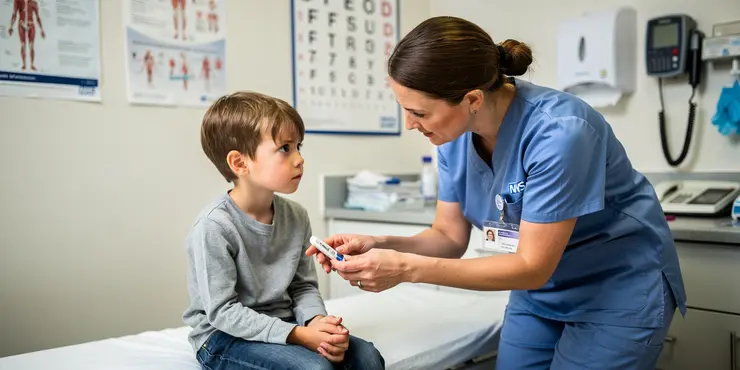
What causes appendicitis?
Relevance: 50%
-
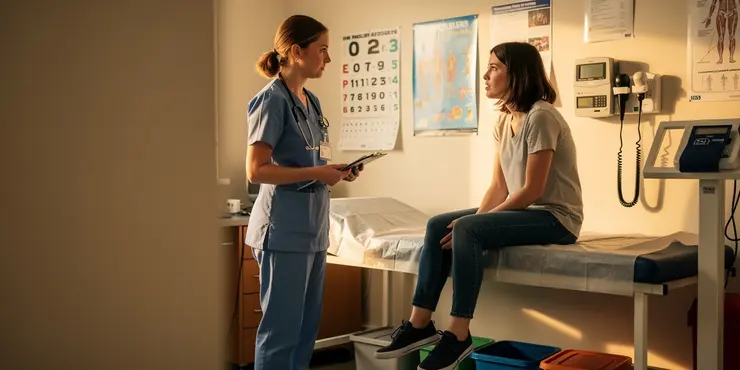
How is appendicitis diagnosed?
Relevance: 49%
-

What is the treatment for appendicitis?
Relevance: 48%
-

What are the common symptoms of appendicitis?
Relevance: 48%
-
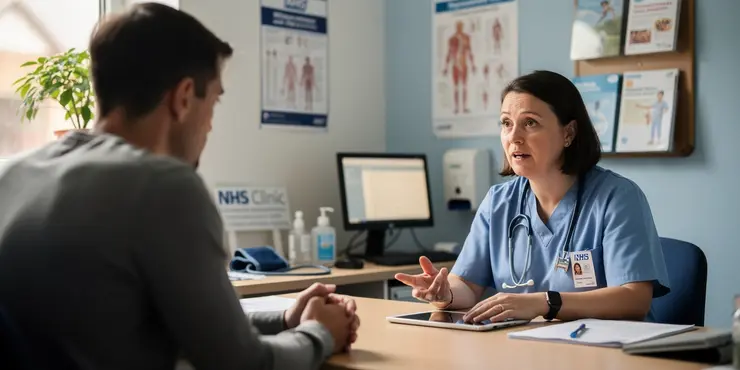
Can appendicitis be treated with antibiotics?
Relevance: 47%
-
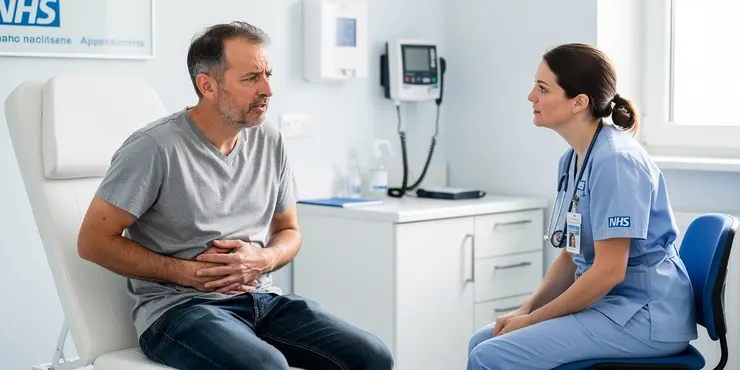
What are the potential complications of appendicitis?
Relevance: 47%
-
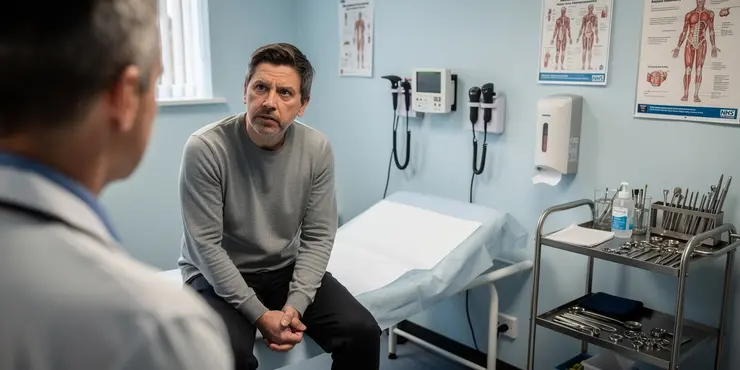
What happens if appendicitis is left untreated?
Relevance: 46%
-
Is motor neurone disease hereditary?
Relevance: 46%
-
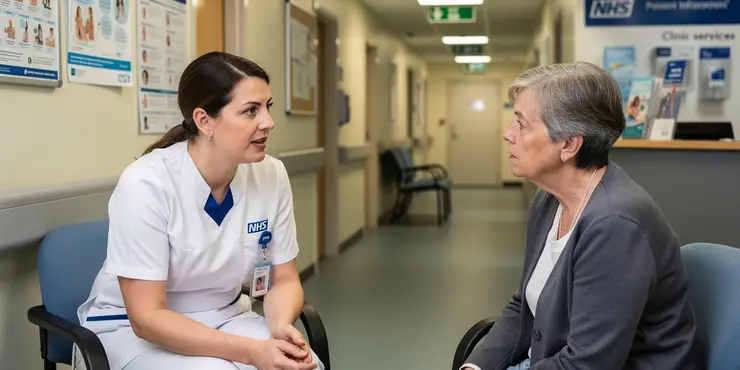
Can appendicitis occur more than once?
Relevance: 45%
-
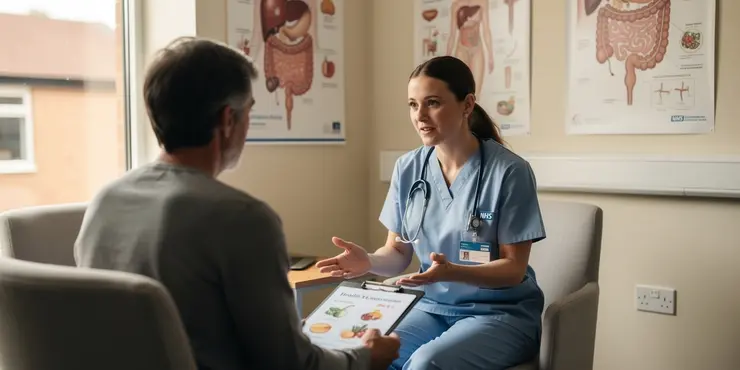
Can diet or lifestyle changes prevent appendicitis?
Relevance: 45%
-
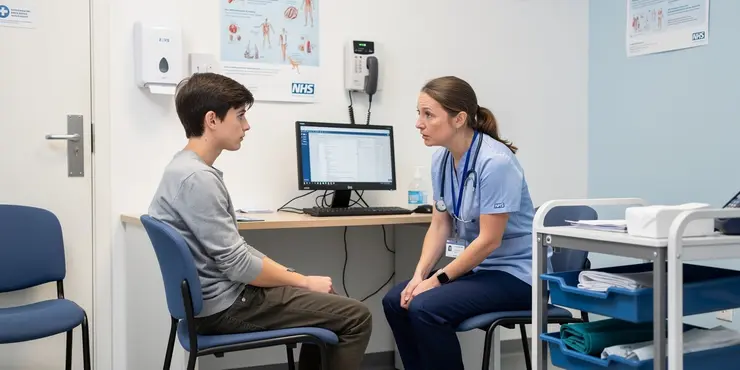
Is appendicitis common in any particular age group?
Relevance: 45%
-
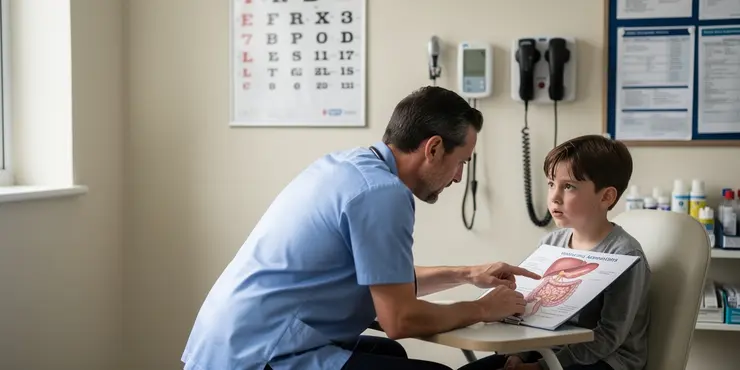
What is the likelihood of needing surgery for suspected appendicitis?
Relevance: 45%
-

Can appendicitis go away on its own?
Relevance: 45%
-
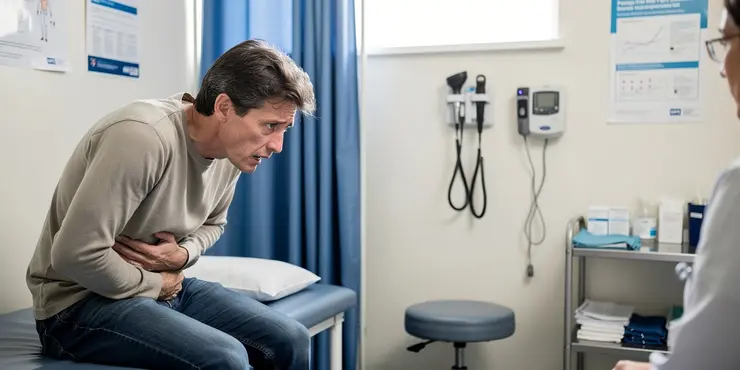
Where is the pain located when you have appendicitis?
Relevance: 43%
-

How is appendicitis different from other causes of abdominal pain?
Relevance: 43%
-
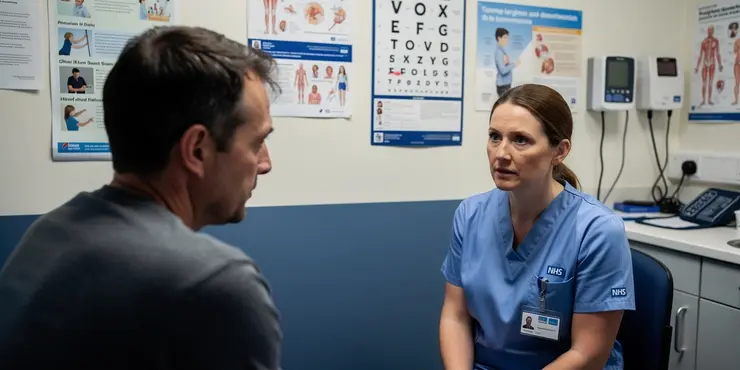
How soon should you see a doctor if you suspect appendicitis?
Relevance: 42%
-

Is Type 2 Diabetes hereditary?
Relevance: 36%
-

Is high blood pressure hereditary?
Relevance: 35%
-

Is bowel cancer hereditary?
Relevance: 27%
-

Can you live without an appendix?
Relevance: 22%
-

Are there any risk factors for appendicitis?
Relevance: 21%
-

Taking a Genetic Family History - The Conversation (Bowel Cancer)
Relevance: 19%
-
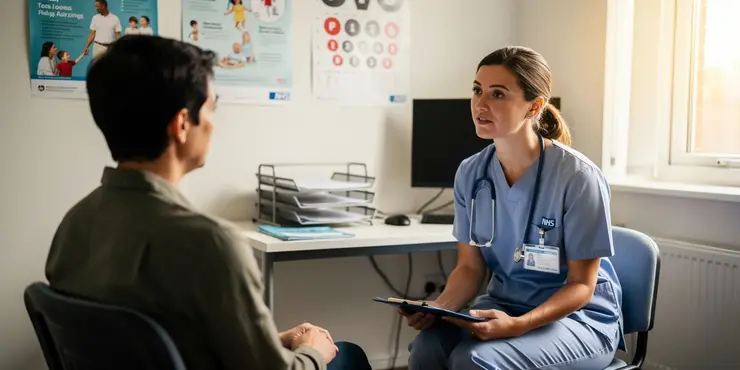
How does family history affect the risk of bowel cancer?
Relevance: 13%
-

Stomach ache and abdominal pain
Relevance: 13%
-
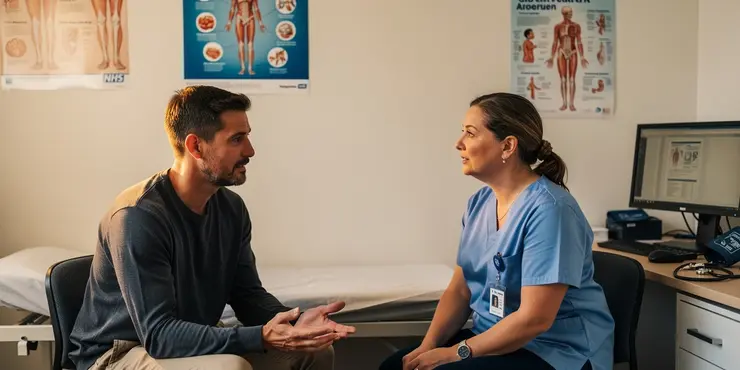
What causes Huntington's disease?
Relevance: 12%
-
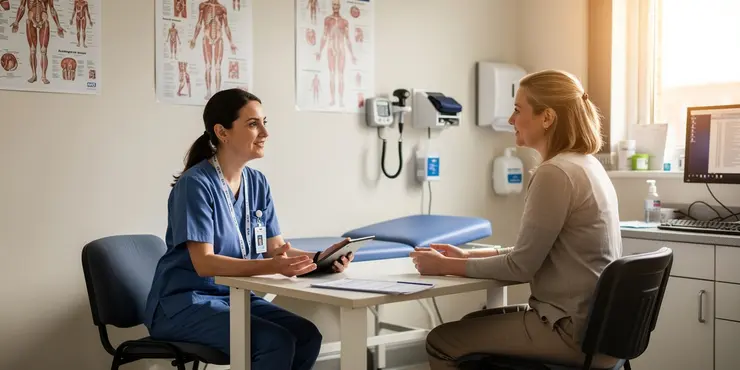
What causes motor neurone disease?
Relevance: 11%
-
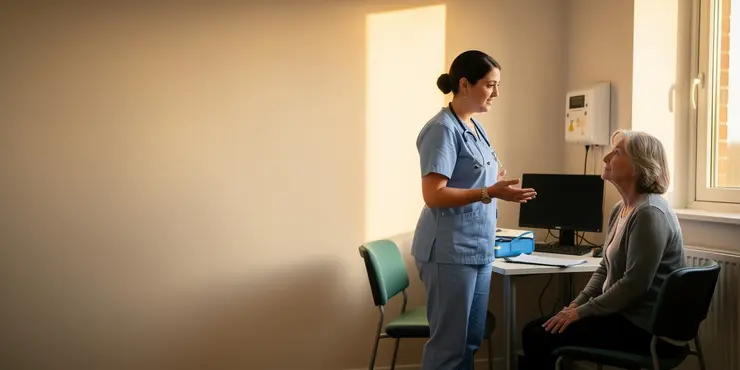
What causes Crohn's disease?
Relevance: 10%
-
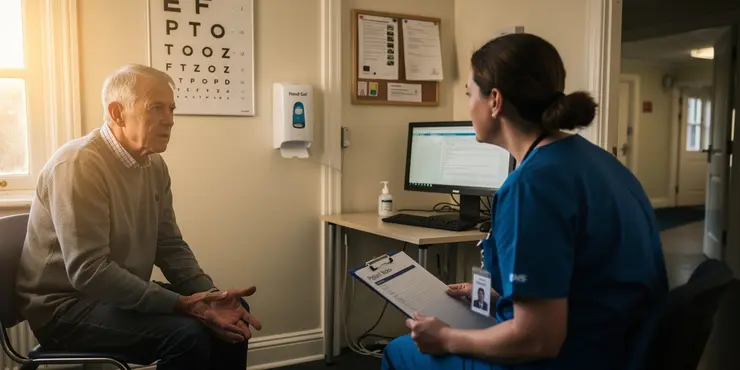
Causes of irritable bowel syndrome (IBS)
Relevance: 10%
-

Can ADHD be inherited?
Relevance: 9%
-

What causes psoriasis?
Relevance: 9%
-

What causes ADHD?
Relevance: 9%
-
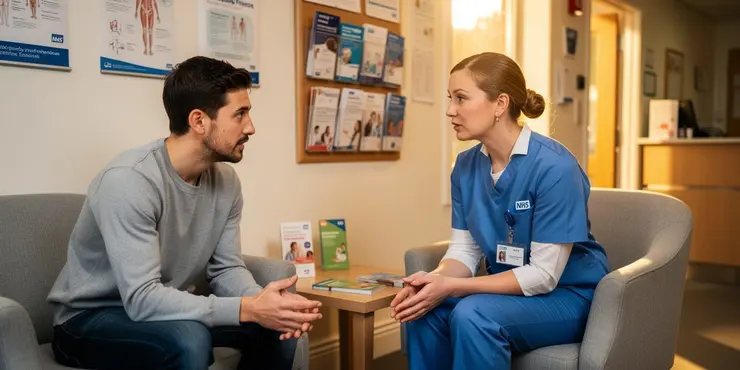
What is MND?
Relevance: 7%
-
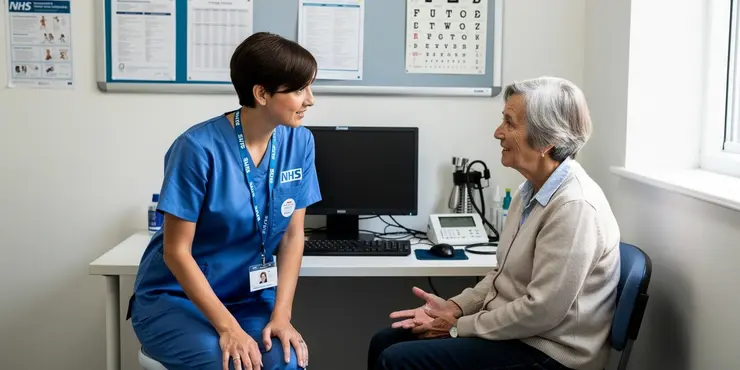
Causes of irritable bowel syndrome (IBS)
Relevance: 7%
-

How long is the recovery time after an appendectomy?
Relevance: 7%
-
How do I know if my surgery is considered elective or urgent?
Relevance: 7%
-

What causes autism?
Relevance: 7%
-
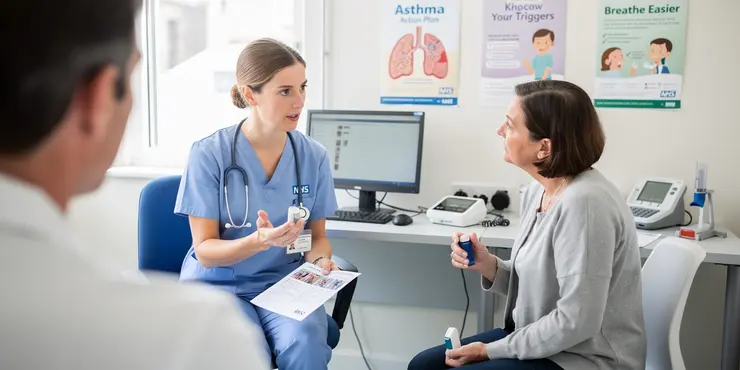
What causes asthma?
Relevance: 6%
-
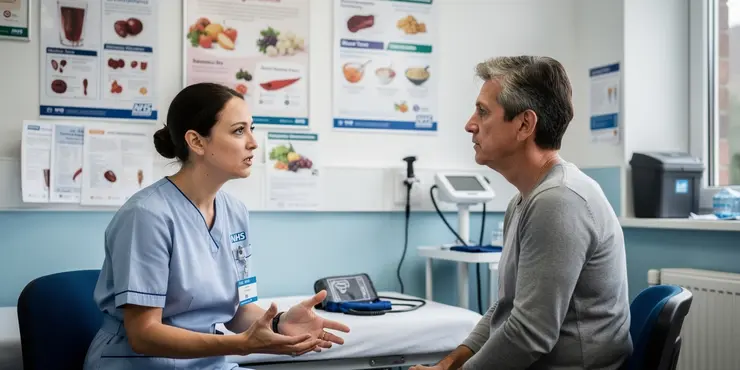
What is Anaemia (iron deficiency)?
Relevance: 6%
Introduction
Appendicitis is a medical condition that occurs when the appendix, a small pouch attached to the large intestine, becomes inflamed. It is a common condition that often requires surgical removal of the appendix, known as an appendectomy. In the UK, appendicitis is a frequent cause of emergency abdominal surgery. Understanding whether appendicitis is hereditary can help in assessing individual risks and taking preventive measures.
Genetic Factors
Current research suggests that there may be a genetic component to the likelihood of developing appendicitis. Studies have shown that appendicitis is more common in families, indicating a possible hereditary link. If a close family member, such as a parent or sibling, has experienced appendicitis, the likelihood of developing the condition may be slightly increased. However, this does not mean that appendicitis is directly inherited, as there are numerous factors involved in its onset.
Environmental and Lifestyle Factors
While genetics may play a role, environmental and lifestyle factors are also crucial when considering the risk of appendicitis. Diet is believed to be a significant factor; diets low in fibre may increase the risk of appendicitis. Insufficient dietary fibre can lead to constipation, which is known to increase pressure in the appendix, potentially leading to inflammation. Furthermore, infections and inflammations in the gastrointestinal tract may also trigger appendicitis.
Symptoms and Diagnosis
Common symptoms of appendicitis include abdominal pain, particularly around the lower right side, nausea, vomiting, and fever. Early diagnosis and treatment are vital to prevent complications such as a ruptured appendix, which can lead to peritonitis, a life-threatening abdominal infection. When appendicitis is suspected, medical professionals typically conduct a physical examination, and may use imaging tests such as ultrasounds or CT scans to confirm the diagnosis.
Conclusion
In conclusion, while there does seem to be a familial aspect to appendicitis suggesting a potential hereditary influence, it is not solely a genetic condition. A combination of genetic predispositions and environmental factors likely contribute to the development of appendicitis. Maintaining a balanced diet rich in fibre and being aware of the symptoms can aid in early detection and treatment. If you have a family history of appendicitis, discussing your individual risk factors with a healthcare professional is advisable.
Introduction
Appendicitis happens when a part of your body called the appendix gets swollen and sore. The appendix is a small part of your body near the big intestine. If it gets very sore, doctors might need to take it out with an operation. In the UK, many people have this operation when their appendix hurts badly. Knowing if appendicitis runs in families can help you understand your health risks better.
Genetic Factors
Scientists think that appendicitis might sometimes run in families. If your parents or brothers and sisters had appendicitis, you might be more likely to get it too. But this does not mean you will definitely get it. Many things can cause appendicitis to happen.
Environmental and Lifestyle Factors
Your way of living and the things around you can also affect your chances of getting appendicitis. What you eat is important. Eating foods with not much fibre can make it more likely to get appendicitis. Not enough fibre can cause constipation (when it is hard to poo), and this can make the appendix hurt. Getting infections in your tummy can also lead to appendicitis.
Symptoms and Diagnosis
If you have appendicitis, you might feel pain in your belly, especially in the lower right part. You could also feel sick, throw up, or have a fever. It is important to see a doctor quickly to avoid serious problems like an appendix burst. Doctors might press on your belly or use special pictures like ultrasounds to find out if you have appendicitis.
Conclusion
To sum up, while some families might have a higher chance of getting appendicitis, it is not only because of genes. Both your genes and how you live can lead to appendicitis. Eating foods with plenty of fibre and knowing what the signs are can help find and fix it early. If appendicitis runs in your family, talk to a doctor about your risks.
Frequently Asked Questions
What is appendicitis?
Appendicitis is an inflammation of the appendix, a small tube attached to the large intestine.
Is appendicitis considered hereditary?
Appendicitis is not considered a hereditary condition. It can occur in individuals without a family history.
What causes appendicitis?
The exact cause of appendicitis is often unclear, but it can be due to a blockage of the appendix, leading to infection.
Can family history increase the risk of appendicitis?
While family history may slightly increase the risk, it is not a significant factor in most cases.
What are the symptoms of appendicitis?
Common symptoms include abdominal pain, especially in the lower right side, nausea, vomiting, and fever.
At what age does appendicitis typically occur?
Appendicitis most commonly occurs in people between the ages of 10 and 30.
How is appendicitis diagnosed?
Diagnosis is typically based on physical exams, laboratory tests, and imaging studies like an abdominal ultrasound or CT scan.
What are the treatment options for appendicitis?
The standard treatment is surgical removal of the appendix, known as an appendectomy. Antibiotics may be used as well.
Can appendicitis be prevented?
There is no sure way to prevent appendicitis, but a diet high in fiber may reduce the risk.
What happens if appendicitis is left untreated?
Untreated appendicitis can lead to the rupture of the appendix, causing a serious infection called peritonitis.
Is there a genetic test for appendicitis?
There is no genetic test for appendicitis because it is not primarily a genetic condition.
Could appendicitis run in families?
While appendicitis can occur in multiple family members, it is not usually considered a hereditary disease.
Are there lifestyle factors that contribute to appendicitis?
Diet low in fiber may be associated with a higher risk, but specific lifestyle factors are not well-defined.
What role do genes play in appendicitis?
Genes do not have a significant role in most cases of appendicitis. Environmental factors are more likely to contribute.
How quickly do appendicitis symptoms develop?
Symptoms usually develop rapidly over a period of 12 to 24 hours.
Can children get appendicitis?
Yes, appendicitis can occur in children, especially teenagers.
Is abdominal pain always a symptom of appendicitis?
Abdominal pain is a key symptom, but not all abdominal pain is due to appendicitis.
Can appendicitis recur?
Once the appendix is removed, appendicitis cannot recur.
What are potential complications of appendectomy?
Complications may include infection, bleeding, or injury to nearby organs.
Can appendicitis be misdiagnosed?
Yes, appendicitis can be misdiagnosed due to overlapping symptoms with other conditions like gastroenteritis.
What is appendicitis?
Appendicitis is when the appendix gets very sore and swollen. The appendix is a small tube in your belly. If it gets sore, you might feel pain on the right side of your belly. It’s important to see a doctor if you think you have it.
Helpful tools: You can use pictures to understand better, or ask a doctor or family member to explain it to you.
Appendicitis means the appendix is swollen and sore. The appendix is a tiny tube that is connected to the big intestine.
Can you get appendicitis from your parents?
Appendicitis is not something you get from your family. It can happen to anyone, even if no one else in your family has had it before.
Why does the appendix get sick?
The appendix is a small part in your belly. Sometimes it gets sick. This is called appendicitis.
Here are some reasons why it might happen:
- Something blocks the opening of the appendix.
- Germs make the appendix sick.
- Sometimes we don't know why it gets sick.
If your belly hurts a lot, tell a grown-up. They can take you to the doctor.
We don’t always know why appendicitis happens. It might happen because something is blocking the appendix, which can cause an infection.
Can your family make you more likely to get appendicitis?
Having a family member with the same condition might make the risk a little higher, but it usually doesn't make a big difference.
What happens if your appendix is sick?
If your appendix is sick, you might feel:
- Bad pain in your belly, usually on the right side
- You feel sick or throw up
- You do not want to eat
- You might get a fever
- Sometimes your belly might swell up
If you feel any of these signs, tell an adult or a doctor. They can help you feel better.
People usually feel a tummy ache, mostly on the lower right side. They might also feel sick, throw up, and have a high temperature.
It can help to use pictures or diagrams to understand better. Listening to someone read the text out loud might also be useful.
When do people usually get appendicitis?
Appendicitis usually happens to people who are 10 to 30 years old.
How do doctors know if you have appendicitis?
Doctors do a few things to check if you have appendicitis:
- Ask Questions: The doctor will ask how you feel and where it hurts.
- Check Your Tummy: The doctor will gently press on your tummy to see if it hurts.
- Special Picture: You might have an x-ray or a scan to see inside your tummy.
- Blood Test: The doctor might take a little blood from your arm to check for signs of being sick.
Helpful Tip: If your tummy really hurts, tell an adult right away. They can help you see a doctor.
Doctors find out what's wrong by doing a check-up, looking at test results, and taking pictures of your tummy with special machines like ultrasound or a CT scan.
What can doctors do to help if you have appendicitis?
If your appendix is sore, a doctor can help you feel better. Here are some ways they might help:
- Medicine: Doctors can give you medicine to stop the pain and help you feel better.
- Surgery: Sometimes, doctors take out the appendix if it is very sick. This is called an operation.
If you don't understand, ask someone to explain it. You can also use apps or books with pictures to help understand more.
The normal way to treat this is by having an operation to take out the appendix. This is called an appendectomy. Sometimes, medicine called antibiotics is used too.
Can we stop appendicitis before it happens?
We can't stop appendicitis for sure, but eating lots of fiber may help keep it away.
What happens if no one helps with appendicitis?
If you do not treat appendicitis, the appendix can burst. This can cause a bad infection called peritonitis.
Can you take a genetic test to find out if you will get appendicitis?
Appendicitis is when your appendix gets really sore. It can make you feel very sick.
Right now, there is no special test to see if you will get appendicitis because of your genes. Genes are like instructions in your body.
Your doctor can help you if you think you might have appendicitis.
To find out more, you can:
- Ask your doctor questions.
- Look at pictures or videos about appendicitis.
- Use simple words to talk about how you feel.
We can't test for appendicitis using genes. This is because appendicitis is not mainly caused by genes.
Can you get appendicitis from your family?
Appendicitis means your appendix is sore and needs help. If someone in your family, like a parent or sibling, had appendicitis, you might get it too.
Talking to a doctor can help. They know lots about appendicitis. You can also use pictures or videos to understand better.
Appendicitis can happen to different people in a family, but it is not known to be passed down from parents to children like some other illnesses.
Can the way we live cause appendicitis?
Appendicitis is when a small part inside your tummy, called the appendix, gets sore and swollen. Some things we do every day might help cause it. Here are a few things to think about:
- Diet: Eating lots of junk food or not enough fruit and vegetables might upset your tummy. Try to eat lots of fruits and veggies.
- Exercise: Moving your body is good! Try to run, jump, or play games to stay healthy.
- Hydration: Drink lots of water every day, like 6-8 glasses. This helps your body work well.
Use picture books or talk to someone to learn more. Remember, it’s okay to ask for help if you do not understand something.
Eating food with not much fiber might make it more likely to get sick. But we don't know exactly which habits cause this.
How do genes affect appendicitis?
Genes are like a set of instructions in your body. They help decide how your body works.
Sometimes, genes can make it more likely for a person to get sick. Appendicitis is when the appendix, a small part in your body, gets swollen and hurts.
If people in your family have had appendicitis, your genes might make it more likely for you to have it too.
To learn more, you can ask a doctor. A doctor can explain in simple words and help you understand what your genes mean for your health.
There are videos and pictures online that show how appendicitis happens. These can help you understand better.
Genes usually do not cause appendicitis. Things around us are more likely to cause it.
How fast do signs of appendicitis show up?
Signs of being sick show up fast, usually in 12 to 24 hours.
Can kids get appendicitis?
Yes, kids can get appendicitis. Appendicitis is when a small part in the belly called the appendix gets very sick. It hurts a lot.
If your belly hurts a lot and you feel sick, tell an adult. They can take you to a doctor. The doctor can help and make you feel better.
Helpful tools: Use picture cards to show how you feel. You can also ask an adult to help you describe the pain.
Yes, children can get appendicitis too, especially older kids and teenagers.
Does a tummy ache always mean appendicitis?
Tummy pain is important, but not all tummy pain means it's appendicitis.
Can appendicitis come back?
When the appendix is taken out, you won't get appendicitis again.
What problems can happen after appendix surgery?
Problems can happen. You might get an infection, have bleeding, or hurt nearby body parts.
Can doctors get it wrong about appendicitis?
Yes, sometimes doctors can think someone has a different problem when they really have appendicitis. This is because appendicitis can look like other illnesses, such as a tummy bug.
Useful Links
This website offers general information and is not a substitute for professional advice.
Always seek guidance from qualified professionals.
If you have any medical concerns or need urgent help, contact a healthcare professional or emergency services immediately.
Some of this content was generated with AI assistance. We’ve done our best to keep it accurate, helpful, and human-friendly.
- Ergsy carfully checks the information in the videos we provide here.
- Videos shown by Youtube after a video has completed, have NOT been reviewed by ERGSY.
- To view, click the arrow in centre of video.
- Most of the videos you find here will have subtitles and/or closed captions available.
- You may need to turn these on, and choose your preferred language.
- Go to the video you'd like to watch.
- If closed captions (CC) are available, settings will be visible on the bottom right of the video player.
- To turn on Captions, click settings .
- To turn off Captions, click settings again.
More Items From Ergsy search
-

Is appendicitis hereditary?
Relevance: 100%
-

What is Appendicitis?
Relevance: 58%
-

What causes appendicitis?
Relevance: 50%
-

How is appendicitis diagnosed?
Relevance: 49%
-

What is the treatment for appendicitis?
Relevance: 48%
-

What are the common symptoms of appendicitis?
Relevance: 48%
-

Can appendicitis be treated with antibiotics?
Relevance: 47%
-

What are the potential complications of appendicitis?
Relevance: 47%
-

What happens if appendicitis is left untreated?
Relevance: 46%
-
Is motor neurone disease hereditary?
Relevance: 46%
-

Can appendicitis occur more than once?
Relevance: 45%
-

Can diet or lifestyle changes prevent appendicitis?
Relevance: 45%
-

Is appendicitis common in any particular age group?
Relevance: 45%
-

What is the likelihood of needing surgery for suspected appendicitis?
Relevance: 45%
-

Can appendicitis go away on its own?
Relevance: 45%
-

Where is the pain located when you have appendicitis?
Relevance: 43%
-

How is appendicitis different from other causes of abdominal pain?
Relevance: 43%
-

How soon should you see a doctor if you suspect appendicitis?
Relevance: 42%
-

Is Type 2 Diabetes hereditary?
Relevance: 36%
-

Is high blood pressure hereditary?
Relevance: 35%
-

Is bowel cancer hereditary?
Relevance: 27%
-

Can you live without an appendix?
Relevance: 22%
-

Are there any risk factors for appendicitis?
Relevance: 21%
-

Taking a Genetic Family History - The Conversation (Bowel Cancer)
Relevance: 19%
-

How does family history affect the risk of bowel cancer?
Relevance: 13%
-

Stomach ache and abdominal pain
Relevance: 13%
-

What causes Huntington's disease?
Relevance: 12%
-

What causes motor neurone disease?
Relevance: 11%
-

What causes Crohn's disease?
Relevance: 10%
-

Causes of irritable bowel syndrome (IBS)
Relevance: 10%
-

Can ADHD be inherited?
Relevance: 9%
-

What causes psoriasis?
Relevance: 9%
-

What causes ADHD?
Relevance: 9%
-

What is MND?
Relevance: 7%
-

Causes of irritable bowel syndrome (IBS)
Relevance: 7%
-

How long is the recovery time after an appendectomy?
Relevance: 7%
-
How do I know if my surgery is considered elective or urgent?
Relevance: 7%
-

What causes autism?
Relevance: 7%
-

What causes asthma?
Relevance: 6%
-

What is Anaemia (iron deficiency)?
Relevance: 6%


